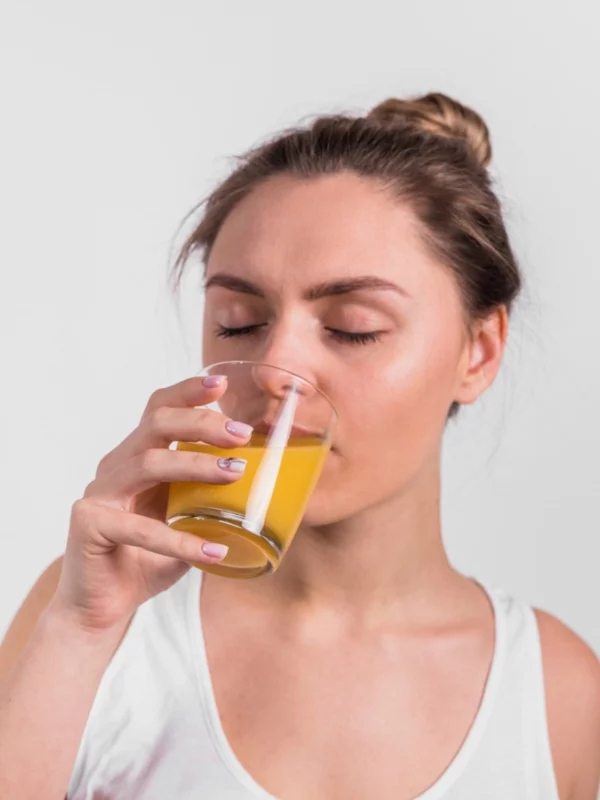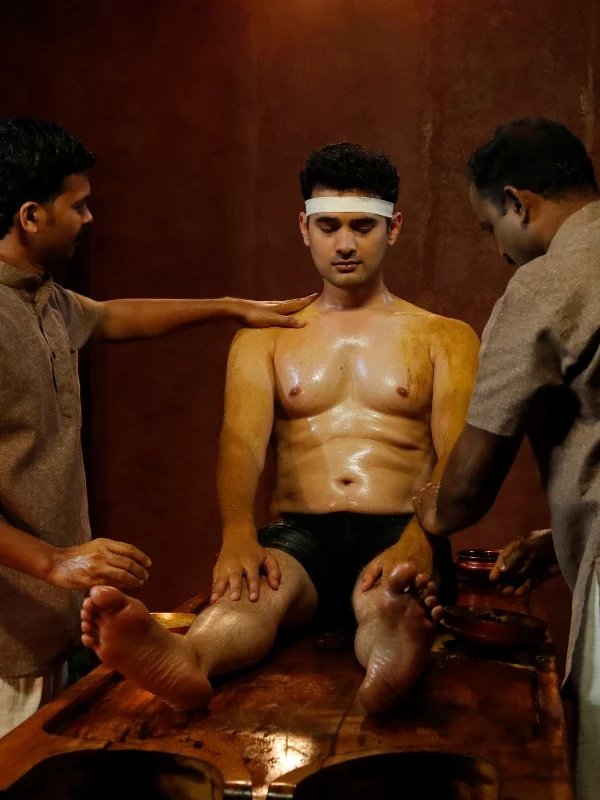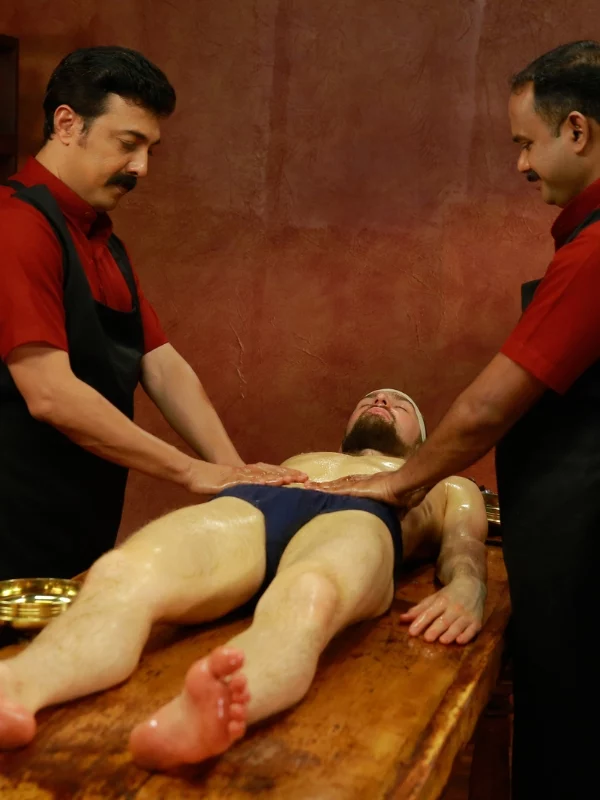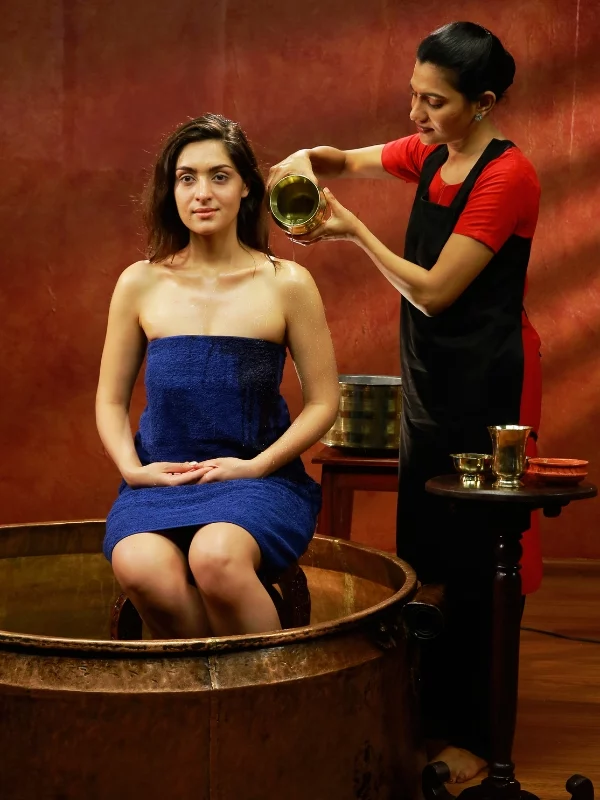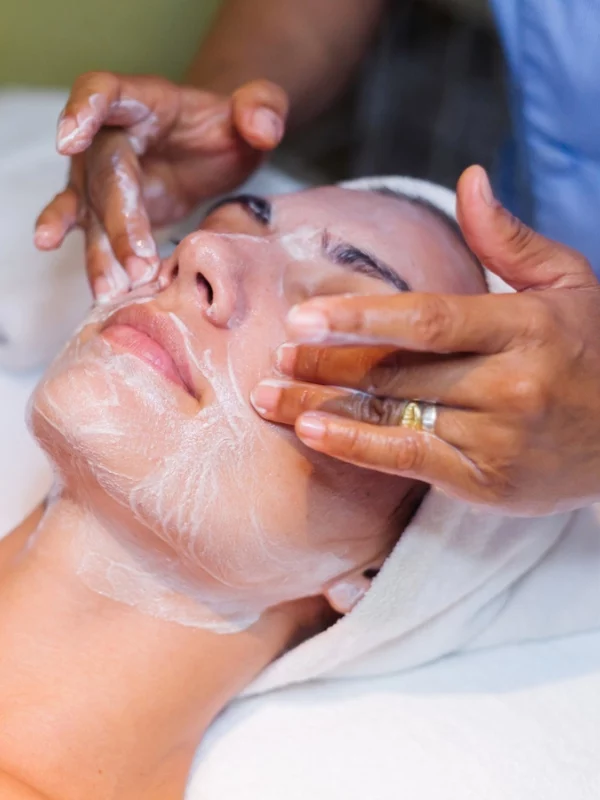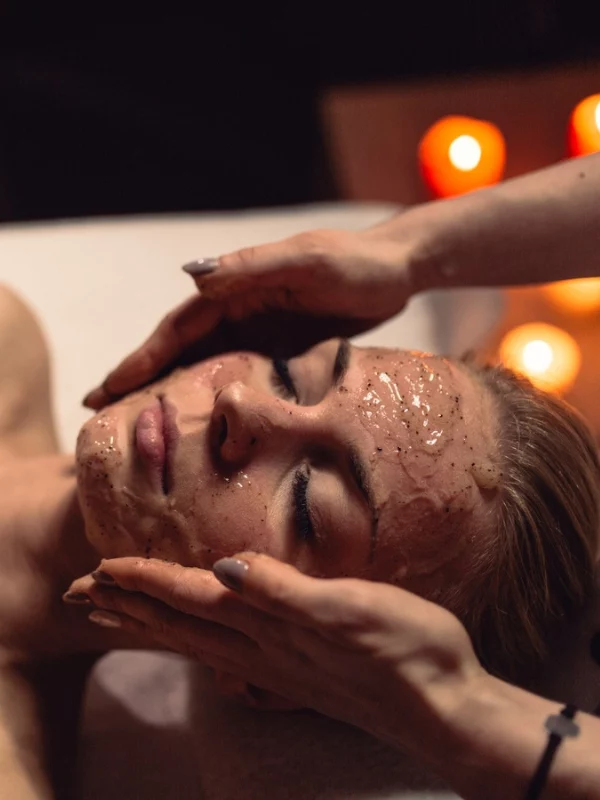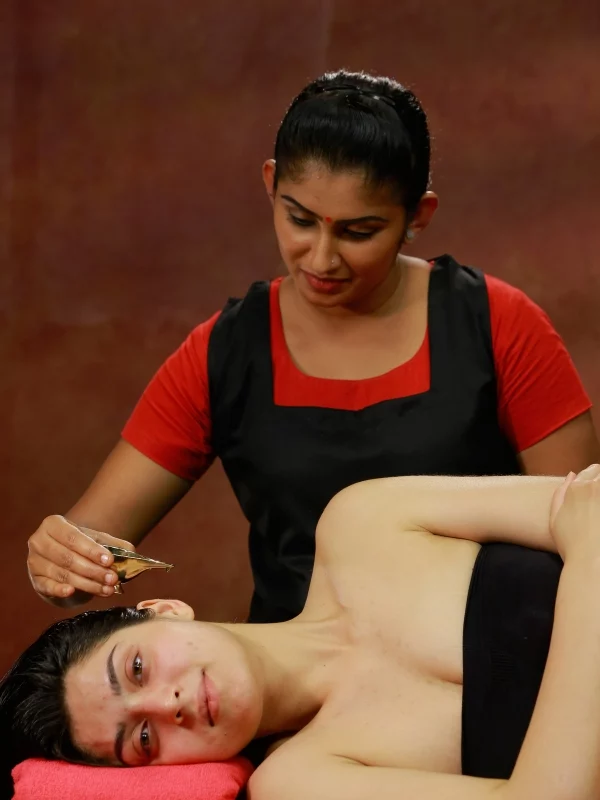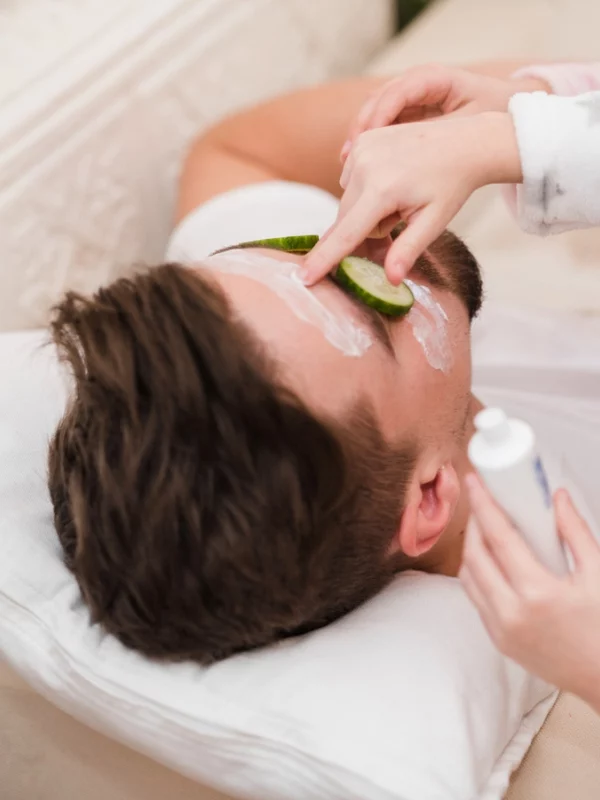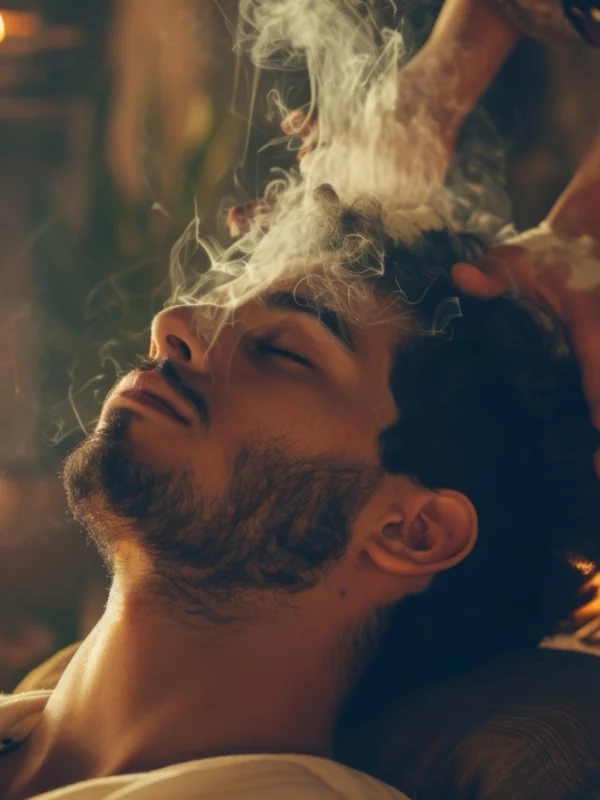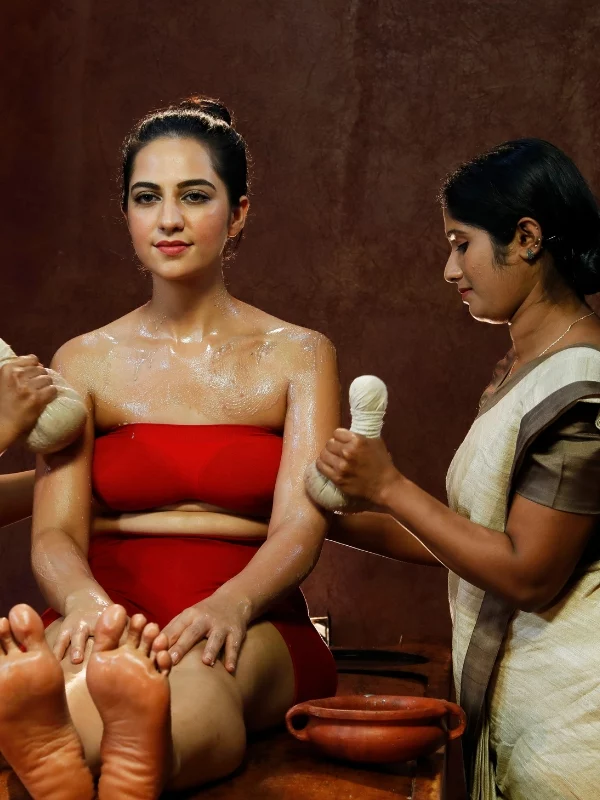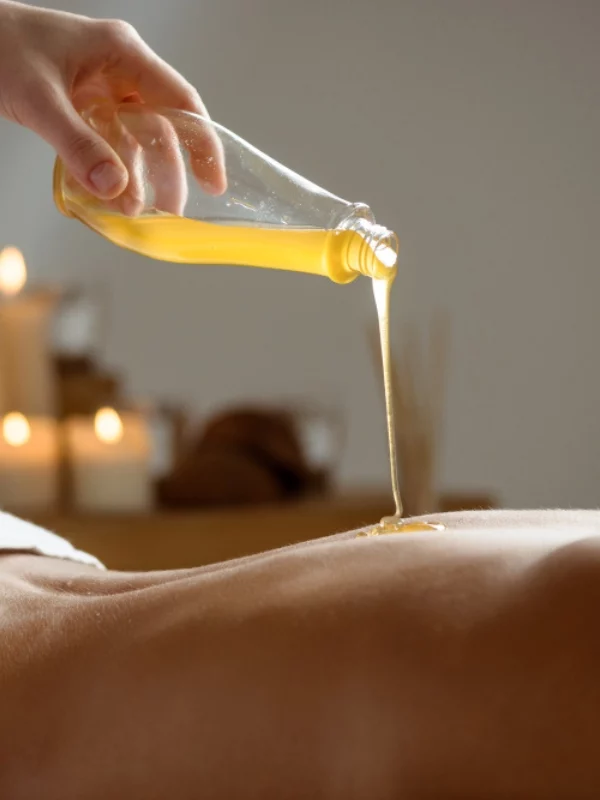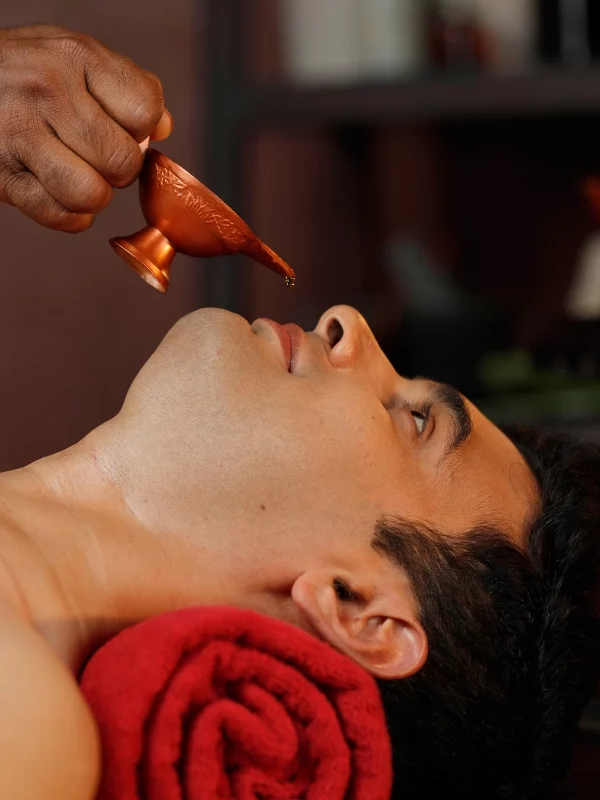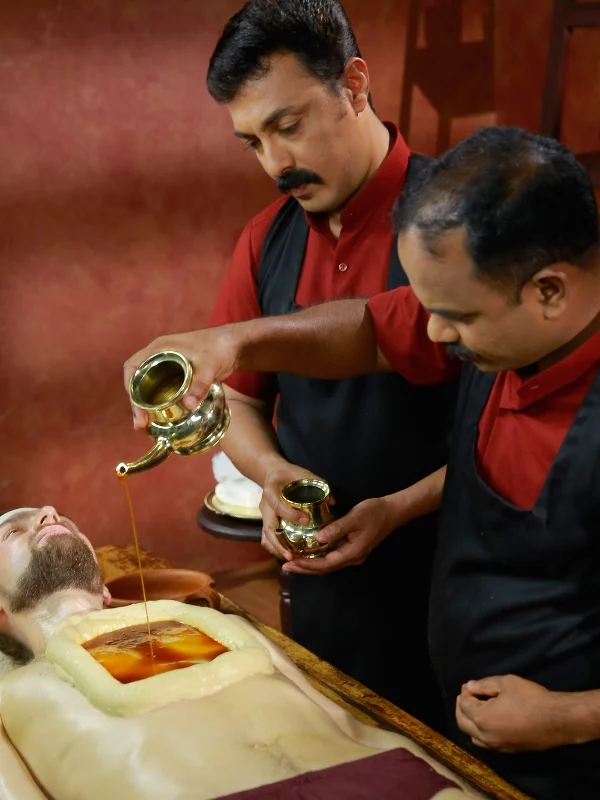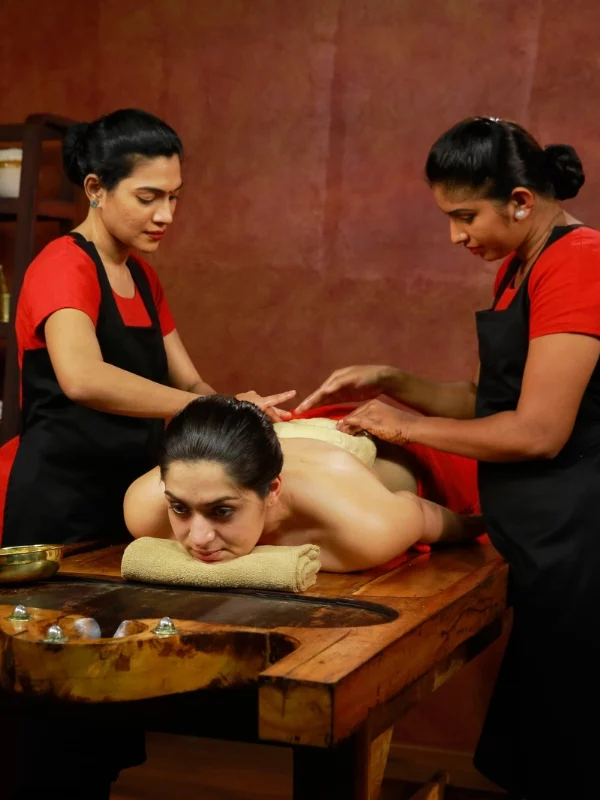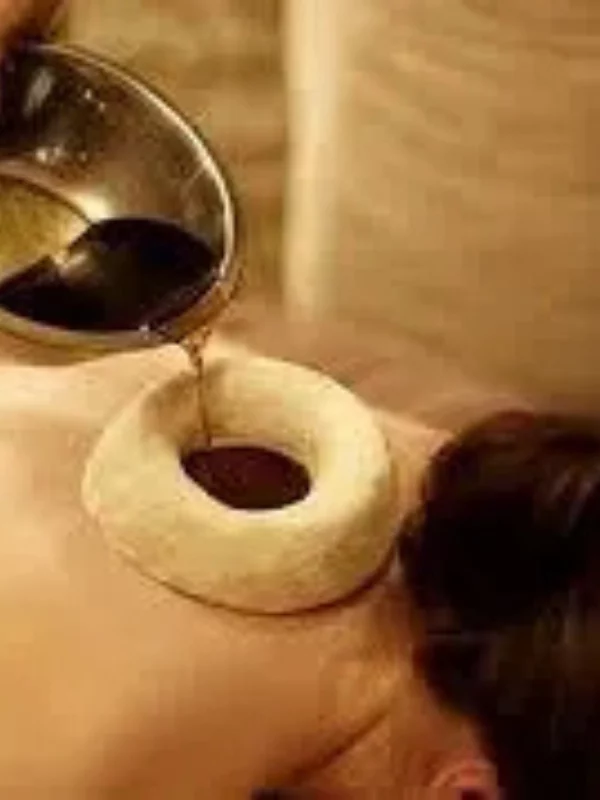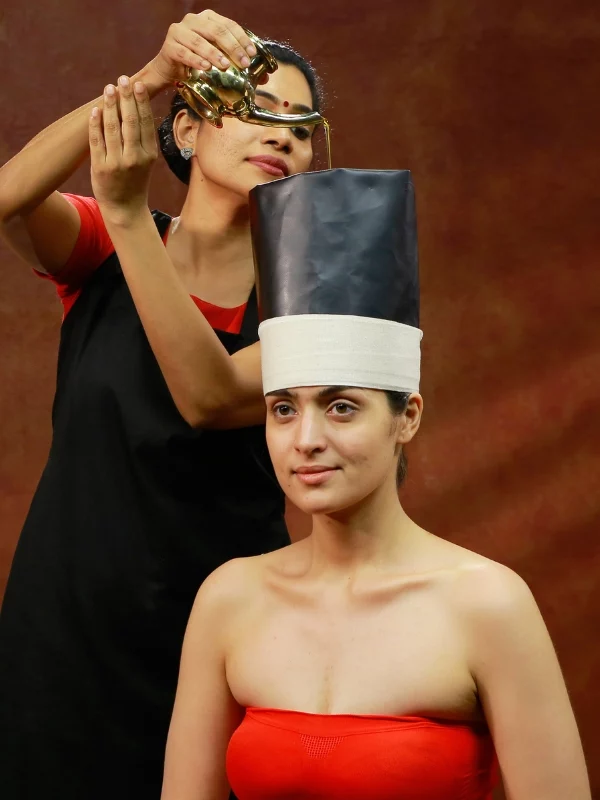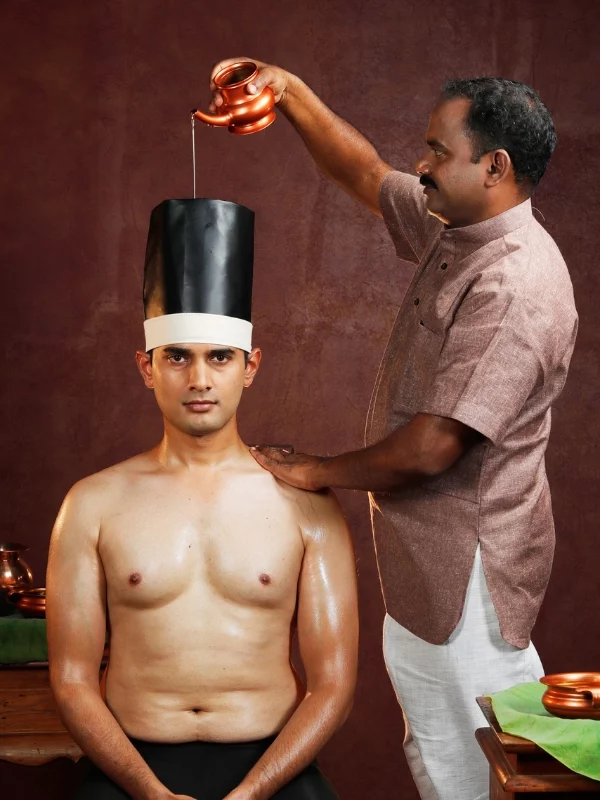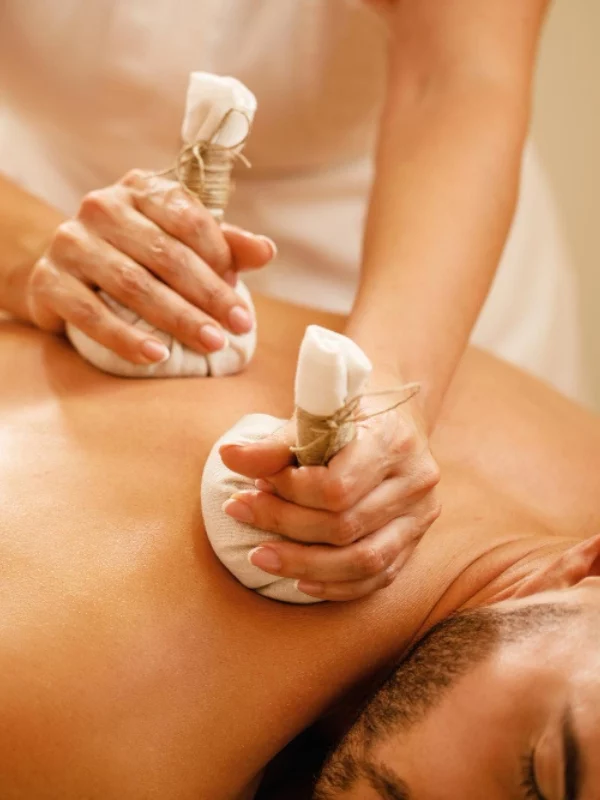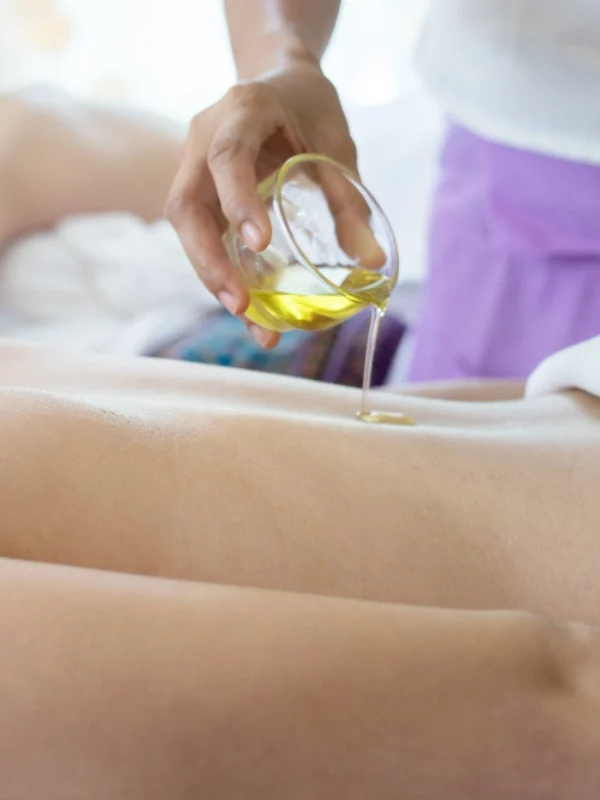Top Ayurvedic Wellness Center in Trivandrum
Your Path to Natural Healing and Inner Balance Begins Here
Experience lasting relief and holistic healing with authentic Ayurvedic treatments in Trivandrum. Dr.Nisha’s Vedic Remedies offers personalized wellness therapies rooted in ancient wisdom.
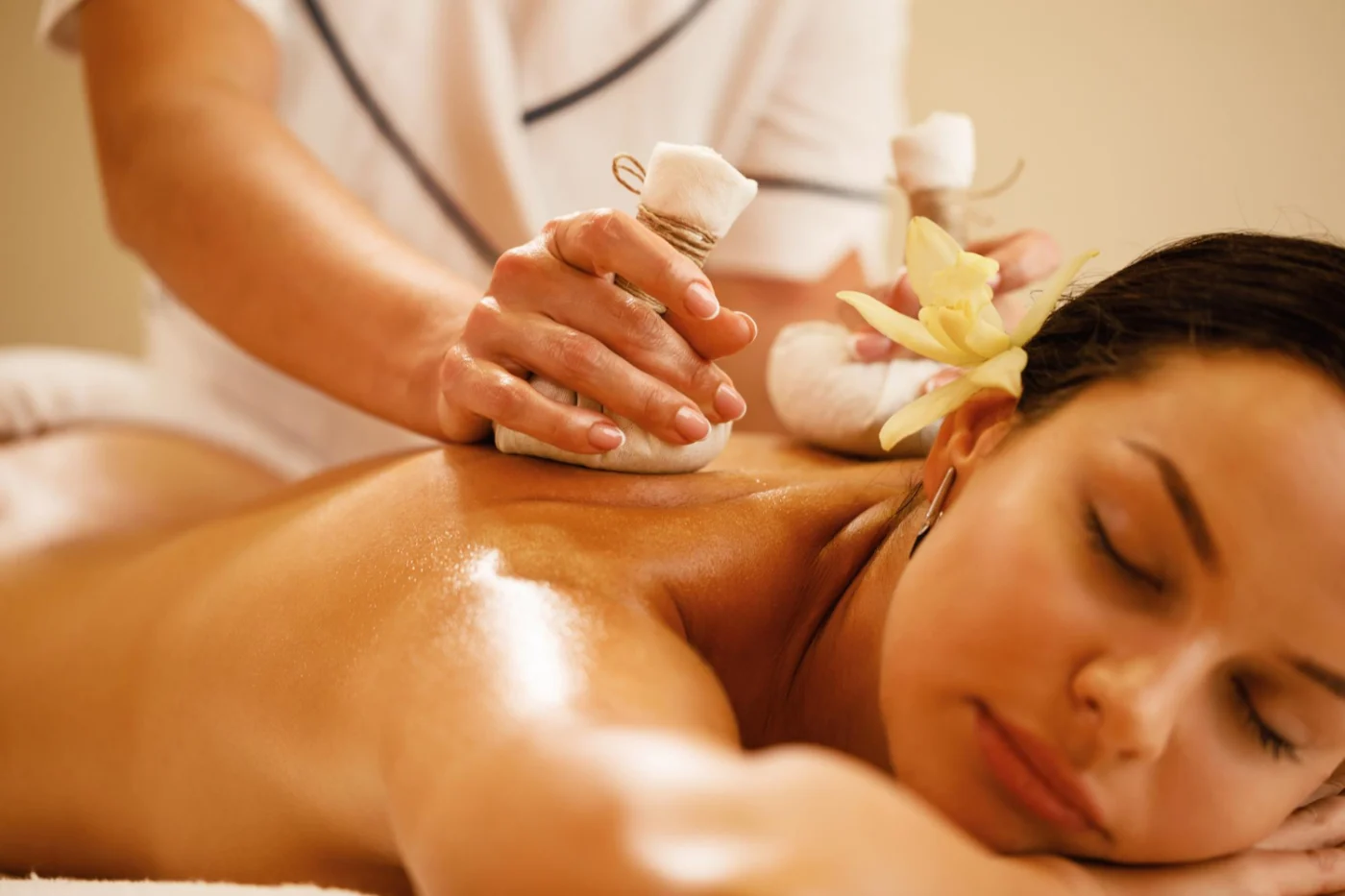
“स्वस्थस्य स्वास्थ्य रक्षणं, आतुरस्य विकार प्रशमनं च।”
(The aim of Ayurveda is to maintain the health of the healthy and to cure the disease of the diseased.)
Prime Treatments rooted in tradition, focused on results
At Dr.Nisha’s Vedic Remedies, our prime treatments are designed to detoxify, rejuvenate, and restore balance. These therapies are customized to your health needs and delivered using authentic Ayurvedic techniques for lasting relief and holistic well-being.
Ayurveda: Where Ancient Wisdom Heals Modern Lives
Reconnect with your natural rhythm, restore inner balance, and experience true wellness — the Ayurvedic way.
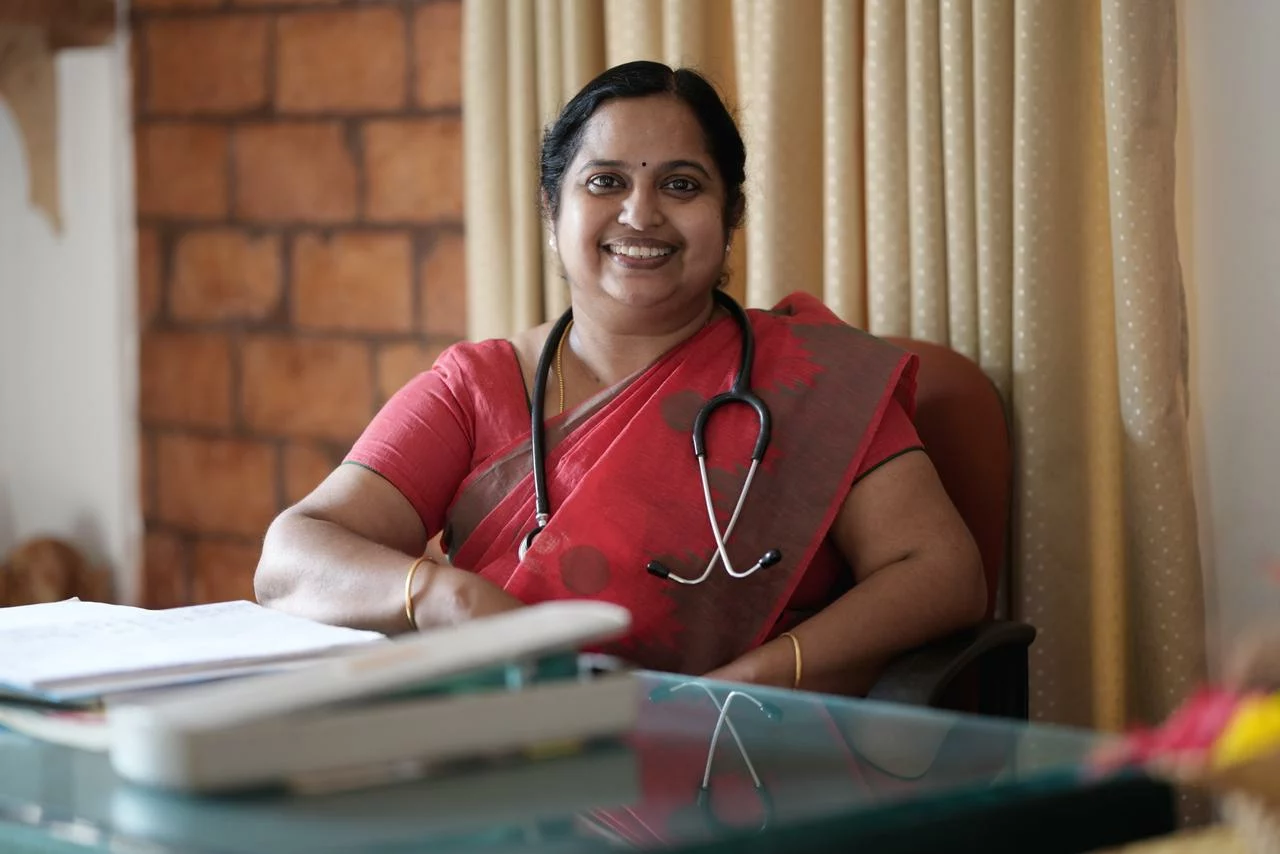
Dr.Nisha Vinod
B.A.M.S (Bachelor of Ayurvedic Medicine &Surgery)
Healing Hands Guided by Ancient Wisdom
Every treatment at Dr.Nisha’s Vedic Remedies is personally overseen, ensuring care that is both authentic and personalized. With deep knowledge of traditional practices and a compassionate approach, your healing journey is in expert hands.
Dr. Nisha Vinod, was born in Kovalam (Kerala) in a family with traditional inclination to Ayurvedic system of medicine. She also got married in to a family which has a legacy of several centuries of Ayurvedic practice. The quality of good physician in her was appreciated by many abroad.
Why Choose Dr.Nisha’s Vedic Remedies ?
We treat the root, not just the symptoms. We believe healing is not just physical, but emotional and spiritual. Our compassionate team listens, understands, and supports you at every stage of your wellness journey.
Authentic Treatments
All therapies follow classical Ayurvedic protocols using herbal medicines and traditional techniques.
Customized Therapies
Every treatment is tailored to your unique body constitution (Prakriti) and health condition.
Comfortable Healing Environment
Calm, hygienic, and serene atmosphere that supports true rejuvenation.
Trusted by Hundreds
Our patients consistently rate us among the best for holistic healing in Trivandrum.
Healing Through Knowledge: Ayurvedic Healthcare Programmes Tailored for You
Our Ayurvedic healthcare programmes combine time-tested treatments with personalized wellness plans to address chronic conditions, boost immunity, and promote long-term health. Designed for all age groups, these programmes offer a holistic path to healing, prevention, and rejuvenation.
Burnout Syndrome
It is a stress related problem often associated with professionals and work related issues. The treatment includes counselling and treatment Yoga packages are offered.
Destress Therapy
The problems such as acidity which leads to ulcer, stress induced headache, fatigue, insomnia, irritable bowel syndrome and some types of skin diseases respond to this treatment package.
Body Immunization and Longevity Treatments
A prime treatment for reducing the ageing process by arresting the premature degeneration of body cells.
Spine and Neck care programme
This treatment prevents degeneration of bone and strengthens back muscles.
Slimming Programme
This programme includes body massage with herbal powder and medicated oil, intake of herbal juices and medicines.
Panchakarma Chikilsa
The treatment includes body massage, snehapanam, Virechanam, Vamanam, Nasyam, Sirovasthi, Kashayavasthi, Sirovathi, Dhara, Pizhichil, Gnjavarakizhi, and Medicated bath.
Panchakarma Programme
The treatments include body massage, Snehapanam, Virechanam. Vamanam, Nasyam, Sirovasthi, Kashayavasthi, Sirovasthi, Dhara. Pizhichil, Gnhavarakizhi and Medicated Bath.
Body Purification Therapy
This is a process to purifying the whole body to attain the balance ofVata, Pitta, Kapha.
Rejuvenation Therapy
The treatment comprises of the massage of the body with medicated oil by hand and foot. It includes an intake of herbal medicines for internal purification.

